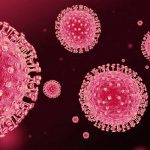The U.S. Department of Agriculture has confirmed the first known case of the coronavirus in a wild animal, a mink.
The discovery increases concerns about outbreaks in mink as the virus has killed more than 15,000 farmed mink in the United States since August.
Global health officials are investigating the potential risk the animals may pose to people after Denmark last month embarked on a plan to eliminate its farmed mink population of 17 million, warning that a mutated coronavirus strain could move to humans.
The USDA said in a notice that it confirmed the case in a “free-ranging, wild mink” in Utah as part of wildlife surveillance around infected farms.
Several animals from different wildlife species were sampled and all tested negative, the USDA added.
The agency said it notified the World Organisation for Animal Health of the recent case but said there is no evidence the virus has been widespread in wild populations around infected mink farms.
“To our knowledge, this is the 1st free-ranging, native wild animal confirmed with SARS-CoV-2,” the USDA said in the notice.
The virus has also been found in zoo tigers and household cats and dogs.
The U.S. Department of Agriculture has confirmed the first known case of the coronavirus in a wild animal, a mink.
The discovery increases concerns about outbreaks in mink as the virus has killed more than 15,000 farmed mink in the United States since August.
Global health officials are investigating the potential risk the animals may pose to people after Denmark last month embarked on a plan to eliminate its farmed mink population of 17 million, warning that a mutated coronavirus strain could move to humans.
The USDA said in a notice that it confirmed the case in a “free-ranging, wild mink” in Utah as part of wildlife surveillance around infected farms.
Several animals from different wildlife species were sampled and all tested negative, the USDA added.
The agency said it notified the World Organisation for Animal Health of the recent case but said there is no evidence the virus has been widespread in wild populations around infected mink farms.
“To our knowledge, this is the 1st free-ranging, native wild animal confirmed with SARS-CoV-2,” the USDA said in the notice.
The virus has also been found in zoo tigers and household cats and dogs.
The U.S. Department of Agriculture has confirmed the first known case of the coronavirus in a wild animal, a mink.
The discovery increases concerns about outbreaks in mink as the virus has killed more than 15,000 farmed mink in the United States since August.
Global health officials are investigating the potential risk the animals may pose to people after Denmark last month embarked on a plan to eliminate its farmed mink population of 17 million, warning that a mutated coronavirus strain could move to humans.
The USDA said in a notice that it confirmed the case in a “free-ranging, wild mink” in Utah as part of wildlife surveillance around infected farms.
Several animals from different wildlife species were sampled and all tested negative, the USDA added.
The agency said it notified the World Organisation for Animal Health of the recent case but said there is no evidence the virus has been widespread in wild populations around infected mink farms.
“To our knowledge, this is the 1st free-ranging, native wild animal confirmed with SARS-CoV-2,” the USDA said in the notice.
The virus has also been found in zoo tigers and household cats and dogs.
The U.S. Department of Agriculture has confirmed the first known case of the coronavirus in a wild animal, a mink.
The discovery increases concerns about outbreaks in mink as the virus has killed more than 15,000 farmed mink in the United States since August.
Global health officials are investigating the potential risk the animals may pose to people after Denmark last month embarked on a plan to eliminate its farmed mink population of 17 million, warning that a mutated coronavirus strain could move to humans.
The USDA said in a notice that it confirmed the case in a “free-ranging, wild mink” in Utah as part of wildlife surveillance around infected farms.
Several animals from different wildlife species were sampled and all tested negative, the USDA added.
The agency said it notified the World Organisation for Animal Health of the recent case but said there is no evidence the virus has been widespread in wild populations around infected mink farms.
“To our knowledge, this is the 1st free-ranging, native wild animal confirmed with SARS-CoV-2,” the USDA said in the notice.
The virus has also been found in zoo tigers and household cats and dogs.
The U.S. Department of Agriculture has confirmed the first known case of the coronavirus in a wild animal, a mink.
The discovery increases concerns about outbreaks in mink as the virus has killed more than 15,000 farmed mink in the United States since August.
Global health officials are investigating the potential risk the animals may pose to people after Denmark last month embarked on a plan to eliminate its farmed mink population of 17 million, warning that a mutated coronavirus strain could move to humans.
The USDA said in a notice that it confirmed the case in a “free-ranging, wild mink” in Utah as part of wildlife surveillance around infected farms.
Several animals from different wildlife species were sampled and all tested negative, the USDA added.
The agency said it notified the World Organisation for Animal Health of the recent case but said there is no evidence the virus has been widespread in wild populations around infected mink farms.
“To our knowledge, this is the 1st free-ranging, native wild animal confirmed with SARS-CoV-2,” the USDA said in the notice.
The virus has also been found in zoo tigers and household cats and dogs.
The U.S. Department of Agriculture has confirmed the first known case of the coronavirus in a wild animal, a mink.
The discovery increases concerns about outbreaks in mink as the virus has killed more than 15,000 farmed mink in the United States since August.
Global health officials are investigating the potential risk the animals may pose to people after Denmark last month embarked on a plan to eliminate its farmed mink population of 17 million, warning that a mutated coronavirus strain could move to humans.
The USDA said in a notice that it confirmed the case in a “free-ranging, wild mink” in Utah as part of wildlife surveillance around infected farms.
Several animals from different wildlife species were sampled and all tested negative, the USDA added.
The agency said it notified the World Organisation for Animal Health of the recent case but said there is no evidence the virus has been widespread in wild populations around infected mink farms.
“To our knowledge, this is the 1st free-ranging, native wild animal confirmed with SARS-CoV-2,” the USDA said in the notice.
The virus has also been found in zoo tigers and household cats and dogs.
The U.S. Department of Agriculture has confirmed the first known case of the coronavirus in a wild animal, a mink.
The discovery increases concerns about outbreaks in mink as the virus has killed more than 15,000 farmed mink in the United States since August.
Global health officials are investigating the potential risk the animals may pose to people after Denmark last month embarked on a plan to eliminate its farmed mink population of 17 million, warning that a mutated coronavirus strain could move to humans.
The USDA said in a notice that it confirmed the case in a “free-ranging, wild mink” in Utah as part of wildlife surveillance around infected farms.
Several animals from different wildlife species were sampled and all tested negative, the USDA added.
The agency said it notified the World Organisation for Animal Health of the recent case but said there is no evidence the virus has been widespread in wild populations around infected mink farms.
“To our knowledge, this is the 1st free-ranging, native wild animal confirmed with SARS-CoV-2,” the USDA said in the notice.
The virus has also been found in zoo tigers and household cats and dogs.
The U.S. Department of Agriculture has confirmed the first known case of the coronavirus in a wild animal, a mink.
The discovery increases concerns about outbreaks in mink as the virus has killed more than 15,000 farmed mink in the United States since August.
Global health officials are investigating the potential risk the animals may pose to people after Denmark last month embarked on a plan to eliminate its farmed mink population of 17 million, warning that a mutated coronavirus strain could move to humans.
The USDA said in a notice that it confirmed the case in a “free-ranging, wild mink” in Utah as part of wildlife surveillance around infected farms.
Several animals from different wildlife species were sampled and all tested negative, the USDA added.
The agency said it notified the World Organisation for Animal Health of the recent case but said there is no evidence the virus has been widespread in wild populations around infected mink farms.
“To our knowledge, this is the 1st free-ranging, native wild animal confirmed with SARS-CoV-2,” the USDA said in the notice.
The virus has also been found in zoo tigers and household cats and dogs.














